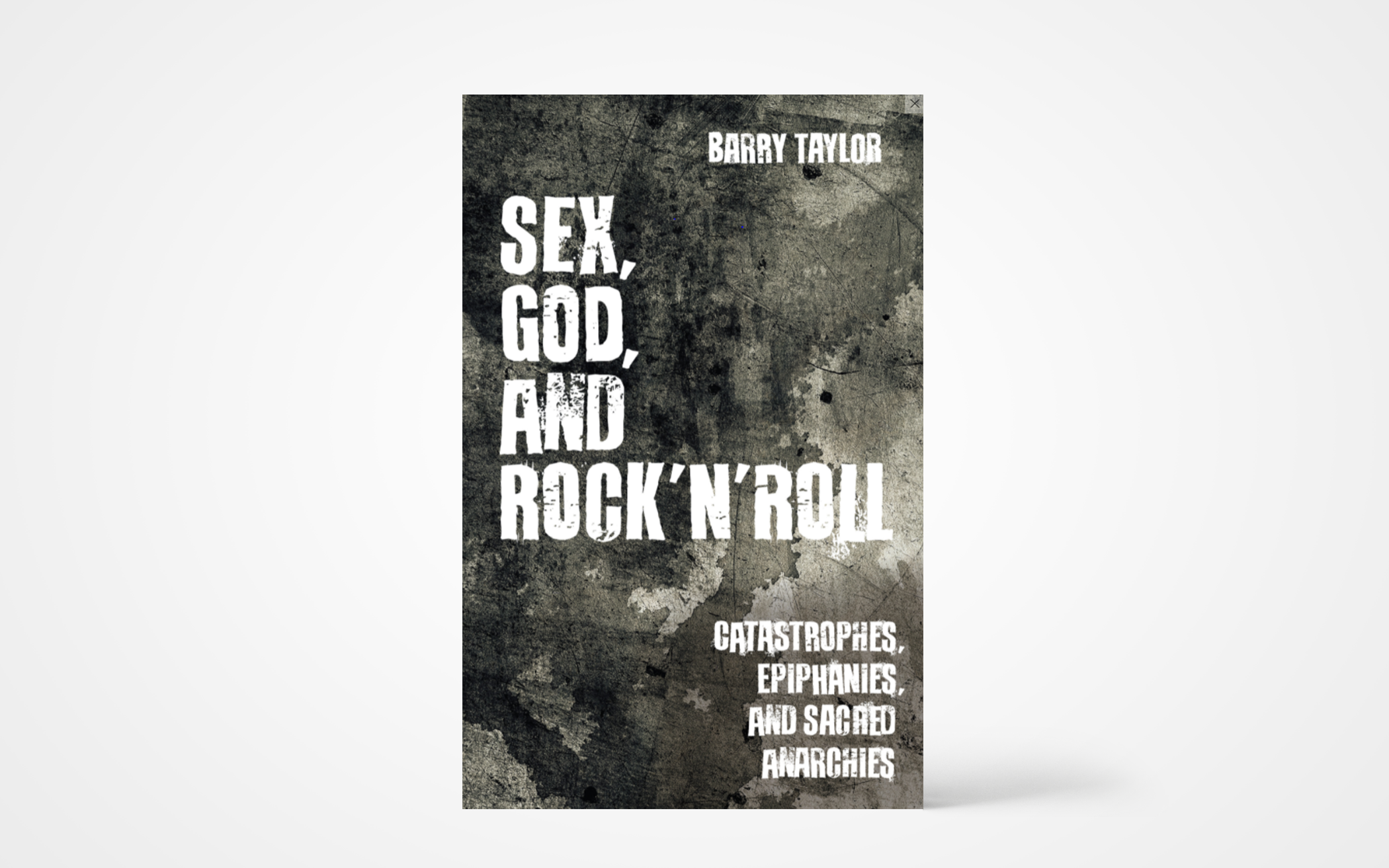Barry Taylor spent his youth traveling the world with the Australian rock and roll band AC/DC. Today he teaches theology and culture at Fuller Seminary in California. Sex, God, and Rock and Roll collects his memories together, giving us a picture of the way his life unfolded as well as connecting the former (rock and roll) to the latter (theology).
Because of Taylor’s deep immersion in the music scene, his theology is developed in a musical key. “I approach my theological work from a musical perspective,” he says, “I look for the melody, rhythm, and beat of Scripture, and I try to grasp the emotional arc of what I find.”
Most theology is heavily rational. Christian philosopher Jamie Smith has cautioned us about imagining ourselves as “brains on sticks.” There’s far more to what it means to be human (and to live a fully human life) than the narrow parameters of the intellect. But other than people like Jeremy Begbie, there are few theologians who are able to break out of the cognitive straitjacket and utilize musical insights when it comes to reflecting on God.
For those who are musical, some of the implications of Taylor’s approach to theology might sound familiar. To learn and become proficient at performing a piece of music as a whole, it needs to be broken down into manageable bits. So too, Taylor says, about theology and God: we need something “akin to the philosophical notion of deconstruction … a radical theology idea of getting down to the roots.” But this should not be taken to mean destruction, but rather that Scripture “probably has more to say than we have allowed. We have failed to listen and let the text truly speak.”
For Taylor, this need for letting Scripture truly speak to us about God is most relevant when it comes to the contemporary fascinations with individual spirituality and institutional religion. Having grown up and lived within the hippie counterculture, Taylor relates many bizarre stories of individual spirituality. But now teaching within evangelical seminaries and churches, he also speaks of how we limit God to our favorite dogmatic boxes.
This is where music and theology converge for Taylor: in recognizing that neither individual spirituality nor institutional religion lie at the heart of what Scripture is seeking to point us toward. As he says, “the real radical move is not to reject spirituality in favor of religion (or vice versa, I’d want to add), but to reject both. Both are compartmentalized forms of faith and belief.”
This is the unfortunate reality theologians and Christians confront today: God has been limited to the categories of “religion” or “spirituality.” But as Taylor says, if the resurrection of Jesus and the tearing of the temple curtain mean anything, they are “a sign that God is out of the religion business.” This is what the New Testament makes clear when we’re able to get back to the roots of it: the resurrection of Jesus is the event in which God busts out of all our manufactured confines and launches himself into the whole world of his Creation that in love he is redeeming.
It is this idea of a world-engaging God, which flows into a world-engaging discipleship, that Christians through the centuries have picked up on here and there. Reformed theologian Abraham Kuyper was one recent proponent of the idea from our own tradition. But as much of Christian culture in North America slides back to a dualistic mindset when it comes to the church and the world, sin and salvation, who will keep playing the music of this radical theological idea in a captivating and joyful way? In this regard, I found Taylor helpful. My theological foot tapped along with his beat. (Fortress)
About the Author
Michael Wagenman is the Christian Reformed campus minister at Western University in London, Ont., where he invites undergraduate students to put their faith into loving service and mentors graduate students. His most recent book is The Power of the Church: The Sacramental Ecclesiology of Abraham Kuyper (Wipf &Stock, 2020).

